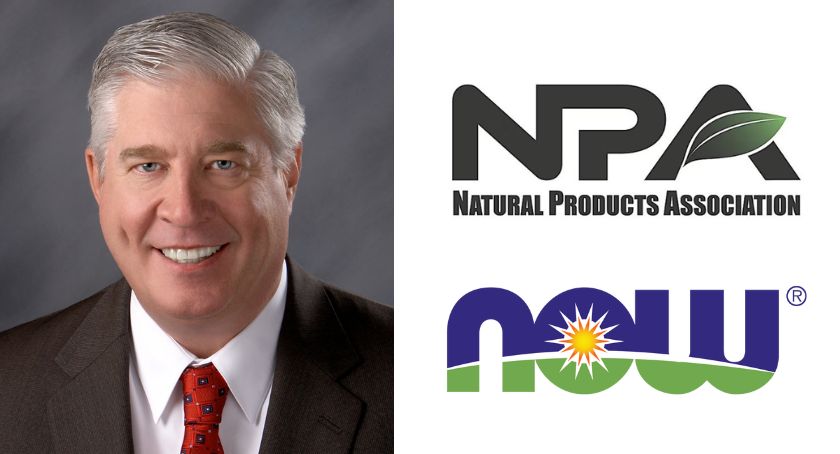Exclusives
FDA Issues Draft Guidance on NDI Enforcement Discretion
Amnesty for late NDI notifications is intended to encourage manufacturers and distributors to correct past failures while collecting safety data, FDA said.

By: Sean Moloughney
FDA has issued a draft guidance on late submissions of New Dietary Ingredient (NDI) Notifications, saying it intends to exercise enforcement discretion “for a limited time and in limited circumstances,” to encourage manufacturers and distributors to correct instances where a premarket NDI notification was required, but never submitted. FDA is accepting comments on its draft guidance by Jul. 19, 2022.
In 1994, the Dietary Supplement Health and Education Act (DSHEA) amended the Federal Food, Drug, and Cosmetics Act (FD&CA) to require premarket notification to FDA of “new dietary ingredients” at least 75 days before introduction into interstate commerce.
Since that time, FDA has received about 1,200 NDI notifications. However, the agency has estimated that more than 4,600 NDI notifications should have been submitted and were not.
“A number of firms have told us informally that they realize they should have previously submitted notifications and have the information ready to be submitted, but they are afraid of drawing attention to themselves with a late submission,” FDA’s draft guidance states.
As such, FDA said it does not intend to take enforcement action against firms based on a failure to comply with the requirement to file an NDI notification in a timely fashion.
Offering companies amnesty and allowing for late submissions would also help the agency gain additional safety information about the dietary supplement marketplace, according to FDA, which acknowledged its efforts to reform and modernize regulation.
In the 7-page draft guidance, FDA stated: “Once we have more evidence about the identity and safety of NDI-containing dietary supplements in the marketplace, we will be able to better prioritize our enforcement efforts and protect consumers against products that do not satisfy the applicable safety standards.”
“We remain committed to a flexible framework for dietary supplements that ensures the safety of these products for consumers,” Cara Welch, PhD, director of the Office of Dietary Supplement Programs in the FDA’s Center for Food Safety and Applied Nutrition (CFSAN), said in a press release.
Firms will be able to submit their NDI notifications within 180 days following the publication of a notice in the Federal Register announcing that the final version of the guidance document is available.
NDI Guidance: History and Context
What’s an NDI and when is a notification required? FDA has not established or accepted a master list of “old” dietary ingredients that were present in the food supply at the time of DSHEA’s passage.
FDA released its initial draft guidance on NDI notifications in 2011, revised the draft in 2016, and has never issued a final guidance document on the process, leaving stakeholders to navigate uncertain terrain.
For example, do companies invest the time and resources in filing an NDI, risk rejection, and potentially put themselves at a competitive disadvantage? Many have sidestepped NDI filing and opted for the Generally Recognized As Safe (GRAS) process for substances intended to be added to food.
The self-determination GRAS procedure does not require FDA’s review or approval of scientific evidence gathered to demonstrate a substance is safe under the conditions of intended use. However, companies can voluntarily file a GRAS notice with FDA.
“This guidance doesn’t deal with anything new. It doesn’t clarify anything. I don’t see why this has any real value to anyone, except for FDA,” said Daniel Fabricant, president and CEO of the Natural Products Association (NPA).
When the NDI draft guidance was first published in 2011, Fabricant was the director of the Division of Dietary Supplement Programs (now an Office at NIH). Many of the same issues remain today because the FDA seems unwilling or unable to enforce existing regulations, he said.
Conducting safety studies for an NDI dossier can be expensive—upward of $1 million for an ingredient without a history of traditional use. Copycat and knockoff products based on legitimate NDI filings continue to be a major problem, according to Fabricant.
“If you spend the money, FDA doesn’t protect your investment. As soon as you get a ‘good day letter’ someone knocks you off for pennies on the dollar because FDA doesn’t enforce … If you say ‘mine’s the same’ but you don’t have to prove it, that’s insane.”
Recently, the agency has issued a string of warning letters to companies selling ingredients that it believes are subject to the premarket NDI notification requirement, including CBD.
During Fabricant’s tenure at FDA the agency sent a series of warning letters to companies selling DMAA. “When they didn’t comply we went right to the next level. We didn’t wait,” he said. “If you’re going to send a warning letter you better follow it up with some real action. If you’re not then it doesn’t mean anything. The agency doesn’t seem to get that.”
Steve Mister, president and CEO of the Council for Responsible Nutrition (CRN), encouraged companies with products in the market that are clearly using new dietary ingredients to take advantage of this opportunity and submit data to FDA demonstrating safety of their products.
“Unfortunately, the concerns the agency expressed are partially of its own making by failing to provide a clear direction for when an NDI notification is required and failing to enforce the existing requirements,” Mister said. “FDA has refused to develop an authoritative list of grandfathered ingredients—or to accept as authoritative—the well-documented lists developed by the industry. Eleven years after FDA first proposed a draft guidance to clarify when an ingredient qualifies as ‘new,’ consumers and industry alike are still waiting for the agency to finalize that guidance.”
He added, “FDA cannot expect firms to submit their safety dossiers and manufacturing processes for possible objection when it provides neither meaningful consequences for the failure to file nor a clear roadmap for when an NDI notification is necessary.”
What to File?
If a company submits a late notification consistent with FDA’s enforcement discretion policy, it must include the information required under section 413(a)(2) of the FD&C Act and 21 CFR 190.6, including information to support a conclusion that a dietary supplement containing the NDI will reasonably be expected to be safe.
FDA also recommended that firms provide a copy of the current label for the dietary supplement and documentation that the NDI-containing dietary supplement described in the notification was marketed in the U.S. as of May 20, 2022.
With respect to what information you should provide to support a conclusion that your product is reasonably expected to be safe, FDA noted that companies are not limited in what evidence to rely on. “In general, we suggest including a history of safe use, safety studies, or both,” the guidance stated.
“We suggest that you also include any evidence related to the history of your product’s use since it has been on the market, including any customer complaints and adverse events (whether serious or non-serious) associated with the product. If you conclude that the product’s history of use does not raise safety concerns, you should explain how you reached that conclusion.”
Process and Expectations
FDA said it intends to prioritize review of these submissions. “However, although we expect to confirm receipt of your submission within 75 days after we receive it, we do not anticipate being able to complete our scientific evaluation and provide a response within 75 days after receipt,” the agency said.
“We encourage early communication and discussion so that you can obtain initial feedback on the kind of information to provide and how to provide it. Furthermore, if you are uncertain as to the regulatory status of your product, you may contact us within the first 90 days of the enforcement discretion period with questions about whether your product is subject to the requirement for premarket notification or other questions you may have regarding your product’s status.”
Fabricant noted that FDA has 75 days to respond to a company that files an NDI. “If they don’t respond on day 75 that’s effectively an acknowledgement letter. So people need to understand that as well,” he said.





















